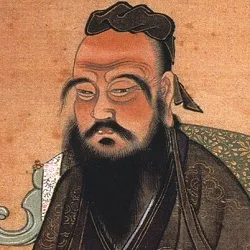- RESEARCHDistance Learning at AIU is enhanced by vast academic resources and innovative technologies build into the Virtual Campus: Hundreds of self-paced courses with video lectures and step by step lessons, thousands of optional assignments, 140,000 e-books, the Social Media & Networking platform allowing collaboration/chat/communications between students, and MYAIU develop students holistically in 11 areas beyond just academics.
- PROGRAMS OFFERED
- Areas of Study
- Courses and Curriculum
- Open Courses
- Register for a Program
- Associate Program
- Associate in Addiction Counseling
- Associate in Agriculture Food And Resources
- Associate in Anti Terrorism Security
- Associate in Behavior Analysis In Special Education
- Associate in Bioethics
- Associate in Climatology
- Associate in Cultural Theological Communication
- Associate in Culinary Arts
- Associate in Ecotechnology
- View all Associates Programs
- Bachelor Program
- Bachelors in Community Development
- Bachelors in Environmental Science
- Bachelor in Education (B.Ed, BS)
- Bachelors in Economics
- Bachelors in Entrepreneurship
- Bachelors in Financial Administration
- Bachelors in Human Resource Management
- Bachelors in Linguistics
- Bachelors in Nutritional Science
- Bachelors in Occupational Health and Safety
- Bachelors in Psychology
- View all Bachelor Programs
- Doctorate Program
- Doctor | of Biology (PhD)
- Doctorate in Business Administration (DBA, PhD)
- Doctor of Economics (PhD)
- Doctor of Electrical Engineering (D.Sc, PhD)
- Doctor of Finance (PhD)
- Doctorate in International Relations
- Doctorate in Information Technology (D.Sc)
- Doctor of Legal Studies (PhD)
- Doctor of Project Management (PhD)
- Doctor of Sociology (PhD, D.Sc)
- Doctorate in Sustainable Natural Resources Management
- View all Doctorate Programs
- Master Program
- Postdoctoral Program
- Postdoctoral in Animal Science
- Postdoctoral in Anti Terrorism Security
- Postdoctoral in Behavior Analysis In Special Education
- Postdoctoral in Bioethics
- Postdoctoral in Blockchain Technology and Digital Currency
- Postdoctoral in Business Management
- Postdoctoral in Cloud Computing
- Postdoctoral in Computer Engineering
- View all Postdoctoral Programs
AIU offers a wide range of majors in areas including the Arts, Business, Science, Technology, Social, and Human studies. More than 120 degrees and programs are available for adult learners at the associate’s, bachelor’s, master’s, doctoral and postdoctoral level. - VIRTUAL CAMPUS
Distance Learning at AIU is enhanced by vast academic resources and innovative technologies build into the Virtual Campus: Hundreds of self-paced courses with video lectures and step by step lessons, thousands of optional assignments, 140,000 e-books, the Social Media & Networking platform allowing collaboration/chat/communications between students, and MYAIU develop students holistically in 11 areas beyond just academics.
- ALUMNI
The world is YOUR campus!”, that is the message of AIU’s month magazine Campus Mundi. Hear the voices and see the faces that make up AIU. Campus Mundi brings the world of AIU to you every months with inspirational stories, news and achievements by AIU members from around the world (students and staff are located in over 200 countries).
Adopting Technology: A Pathway from Hobby to Scientific Exploration

In what ways has Haikubox changed the experience of birdwatching for families and individuals interested in finding and learning about wildlife?
How are AI and bioacoustics technologies changing citizen science and contributing to biodiversity research?
How is Haikubox enabling citizen scientists to contribute toward environmental conservation and scientific understanding?
Suppose you were invited to publicly consider the impact of Haikubox on birdwatching and bioacoustics. In your essay, consider examples from the article and your own reflections, to demonstrate how technological advancements like Haikubox are reframing hobbies into a means of scientific discovery and environmental stewardship.
(Login to your student section to access the AIU Additional Resources Library.)
Adopting Technology: A Pathway from Hobby to Scientific Exploration
In many ways, the modern, and fast-paced world, where one schedules work, school, and social calendars can make family time around a hobby feel like a luxury. But the “hobby” landscape – leisure time and personal growth, is changing and evolving due to innovative technologies that are redefining our interactions with hobbies. Everyone can participate in a hobby for enjoyment, but some of the technologies we embrace are providing opportunities to contribute to research and understanding of the world through our hobbies.

For example, embracing bioacoustics technologies that provide opportunities to monitor bird populations in our backyards, even participating in a genomic investigation based on playing a game showed us technology is creating democratization for scientific opportunity and we will all discover more about birds.
With technologies like AI-based analytics, cloud-based data, and community science platforms, people of all ages and experiences can now engage in scientific activities from their own homes. This important democratization of scientific inquiry has empowered citizen scientists to collect data, examine trends, and collaborate on international research projects that formerly only professional scientists could have done.
Using Community Science: Enhancing Traditional Bird Watching through Bioacoustics
Picture waking up to a dawn chorus of birdsong,- each unique call or song being recorded and identified by a small device in your backyard. This is the experience for families using the Haikubox developed by David Mann and his team for bioacoustics. The Haikubox uses a Raspberry Pi computer for the field recording, and an AI neural network to classify birds by their vocalization.
Haikubox advanced not only the experience of birdwatching but also the idea behind community science. By recording and analysing bird calls without the costs or logistic headaches faced by amateur bioacoustic enthusiasts, it can provide donations of unmatched citizen science data to researchers studying biodiversity and animal behaviour using multiple ecosystems. Each chirp, trill, or tweet provides data to a live database, that researchers use to study and count birds for mapping populations, migration patterns, and tracking ecological integrity over space and time.
In addition, the Haikubox connects its users with their environment. Instead of just birdwatching, people are engaging in something deeper – contributing to science while enjoying being eyewitnesses to wildlife. People don’t only monitor wildlife, they engage in conservation and stewardship. Modern tech in the form of a bioacoustics app, like the Haikubox was a type of democratization of bioacoustics, sparking a wave of citizen scientists to partake in and protect their local biodiversity.
David Mann and his team’s cool work shows how modern tech can enhance pastimes and turn hobbyists into instruments of scientific advancement, rallying together to advance knowledge to support a community focused on the sustainability of Earth. As they grow, Haikuboxes grow, and with it citizen science -initiatives will provide additional citizens to understand birds and their ecology, while allowing citizens a role in preserving a sustainable local natural legacy.
From Pixels to Patterns: The Potential of Gaming for Genomic Research
Video games are beginning to bridge the gap between entertainment and scientific discovery. Borderlands Science, for example, is an educational project in the Gearbox Software-developed game Borderlands 3. Borderlands Science, a simple mini-game, has players solving entertaining block puzzles that contribute to the alignment of genomic sequences. Each puzzle solved helps disambiguate the genetic data, an important part of tracing evolutionary lineages and investigating the multifunctional roles of microbial communities in human health. This project envisions how our interactive entertainment can be a vehicle for meaningful scientific work – casually gaming for scientific research on a global scale.
The Rise of DIY Science: Empowering People Worldwide
Across the planet, science is changing. Science is not just confined to labs and universities, it’s also happening in backyards, living rooms, and local parks. DIY Science, or more commonly known as citizen science, provides opportunities for individuals everywhere to contribute to scientific work and be part of real-world science. Sharing knowledge and collecting data and experiments has never been easier for curious people using their smartphones and increasingly inexpensive technologies, like sensors, audio recorders, and cameras.
To an astronomer, your backyard might not be that dark, but you can still catalog the stars. Your neighborhood probably has different air quality than your sister’s across town, cooperate with your citizens and monitor it first hand. Tracking bird migrations, monitoring air quality in your city, cataloging the stars in the night sky or testing water quality in your community might not seem particularly “scientific” but DIY science is living at the intersection of personal hobby and scientific endeavor. Education and discovery in the Institute are reaching broader audiences, changing what it means to be discovering, being scientifically literate, and exhibiting scientific insight; science is not just for people that wear lab coats, you need only wonder and the desire to discover for yourself.
The best part of the DIY Science movement is its inclusivity and accessibility. Anyone can be a researcher today; students, retirees, hobbyists, and nature nerds are being empowered to use basic research tools to collect data that helps scientists discover solutions to complex problems. Citizen science tools such as iNaturalist, Foldit, and the Globe Observer have not only bridged the gap between professional science and public engagement, but has also put millions of people to work by allowing them to help with biodiversity tracking, protein studies, and climate change observations. DIY science is increasing fidelity, scale, and scope of scientific studies, and also creating a more personal relationship to science in the process. The more people who have the opportunity to tinker and explore, the more DIY Science is beginning to feel like more than a trend – it’s a global movement demanding parsimony in the way we build, share, and value knowledge for us all.

Lifelong Learning: Facilitating Personal Development and Contributing to Scientific Knowledge
At the core of this blossoming intersection between hobbies and the world of science is the concept of lifelong learning and the recognition of its transformative power. In a world where knowledge is typically one tap away, the items we do in our everyday life can quickly serve as a pathway to initiate discovery! Imagine determining which birds are visiting your backyard via Haikubox or piecing together genomic pieces over at Borderlands Science. Individuals of all ages have taken joy in learning outside of formal spaces through playing games. These experiences awaken curiosity, sharpen critical thinking, and impart a sense of purpose, showcasing that learning doesn’t end with a diploma but continues to evolve with our passions, ultimately driving knowledge in the areas in which we pursue these curiosities and chose to explore them with the tools available to us in that moment.
The impact this has on our development is particularly profound when we consider how technology accesses spaces that were once exclusive by placing instruments and platforms in the hands of those individuals with an interest and internet access. From inquisitive kids participating in citizen science projects to retirees seeking new intellectual adventures, technology has catalyzed this democratization of exploration through gigapixels, and social and cultural media-enabled access, establishing active participants in the scientific process where there were once merely passive consumers of knowledge. Not only is development occurring in individuals’ lives, but communities are ultimately being strengthened through the exchange of knowledge and collaborative efforts advancing progress. It is a wonderful reminder that learning is a lifelong habit and every moment serves as an opportunity to be inspired, innovate, and contribute to something bigger than ourselves.
Conclusion: Combining Passion with Purpose
In a world of scarcity of time, distractions everywhere, merging technology and hobbies provides a unique and personal pathway into science. Whether it’s identifying bird calls with artificial intelligence or unravelling genomic puzzles through interactive gaming experiences, you can take ordinary moments in time and transform them into significant and impactful contributions to global knowledge. Each time you play, you learn and contribute to the advancement of science on a global scale; not only in your own life but also cooperatively in the enhancement of knowledge.

This journey, from inquiry to discovery, represents human ability and the limitless possibilities that technology can enhance to facilitate inquiry and exploration. It is evident that if our passions can be anchored with purpose, inspiring change is possible. Science is not in labs anymore; it exists in our living rooms, on our smartphones, and in our play.
At Atlantic International University we believe education should not be a static boring process either. Learning can be dynamic and personalized to our passions, and our purpose. Our programs are process-driven, and self-paced, so you can become a lifelong learner and make an impact on the world, regardless of your age. If you are ready to step outside your curiosity, and become part of a global movement of innovators, explorers, and change-makers – join AIU today, and begin building your future projects linked to your passion and purpose!
The Importance of Having a Hobby
Raspberry Pi Computer Software
Biodiversity, Forests, & Deforestation
Knowledge and Global Power: Making Science in the South
References
How Tech is Turning Science into Hobbies
Reminder to our Dear Students,
Please ensure you are logged in as a student on the AIU platform and logged into the AIU Online
Library before accessing course links. This step is crucial for uninterrupted access to your learning
resources.
AIU Success Stories







Contact Us Today!
Begin Your Journey!
AIU’s Summer of Innovation and Growth gives you the ability to earn up to $5000 in tuition credit by completing free lessons and courses.
Whether you’re looking to acquire new skills, advance your career, or simply explore new interests, AIU is your gateway to a world of opportunities. With free access to 3400 lessons and hundreds of courses the ability to earn credits and earn certificates there’s no better time to start learning.
Join us today as a Guest Student and take the first step towards a brighter, more empowered future.
Explore. Learn. Achieve.

Contact Us
Atlantic International University
900 Fort Street Mall 905 Honolulu, HI 96813 [email protected]
Quick Links
Home | Online Courses | Available Courses | Virtual Campus | Career Center | Available Positions | Ask Career Coach | The Job Interview | Resume Writing | Accreditation | Areas of Study | Bachelor Degree Programs | Masters Degree Programs | Doctoral Degree Programs | Course & Curriculum | Human Rights | Online Library | Representations | Student Publication | Sponsors | General Information | Mission & Vision | School of Business and Economics | School of Science and Engineering | School of Social and Human Studies | Media Center | Admission Requirements | Apply Online | Tuition | Faculty & Staff | Distance Learning Overview | Student Testimonials | AIU Blogs | Register for Program | Privacy Policy | FAQ



















